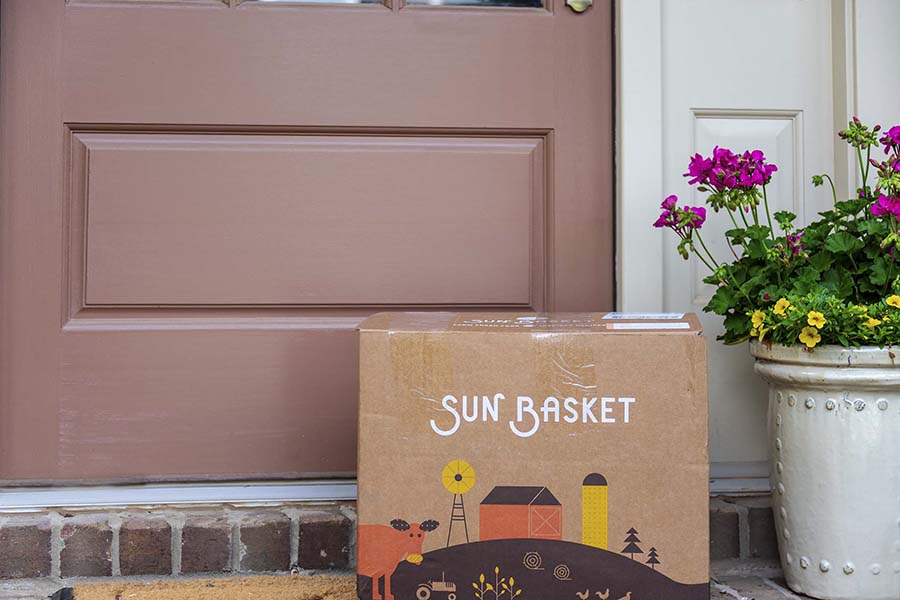Food Safety with Subscription Meals
Friday, July 13, 2018

By John Griffin, Griffin Foods
Chuck and Andrea Bowser of Bartlesville, Oklahoma, are busy parents of two children living at home and going to school. Their son, Tim, and daughter, Erin, are active in school activities, as well as after-school and evening extracurricular events and sports. Finding the time to go to the grocery store and preparing healthy meals can be a huge challenge for this family of four.
The concept of subscription meals, or meal kits, was introduced to our society in 2012, where all ingredients are delivered to your home with simple recipes every week to provide family meals for about $10 a meal. For less than 30 minutes in the kitchen and fewer trips to the grocery store, a healthy meal can be prepared at home. Now, the Bowser Family can sit around the table and discuss the events that took place during the day without the scramble of wasted time trying to figure out what to serve for dinner.
The subscription meal industry is a $2.5 billion per year business, according to Pentallect, a Chicago-based food industry consulting firm. With a 20 percent growth annually, the traditional grocery stores, club stores and even the discounters are getting into the meal preparation business. Walmart, Costco, Kroger and Albertsons, just to mention a few, are now looking to compete with the delivery services. Some of the many delivery services include:
- Blue Apron
- Hello Fresh
- Plated
- Green Chef
- Home Chef
- Sun Baskets
- Marley Spoon
- Green Blender
These services also offer meals for different diets, including organic, all natural, gluten free, vegan, and even kid friendly. Whatever your taste and whatever your budget, there is a meal kit for you.
With the growing popularity of these meal subscription services, the question is: Who is regulating this new industry?
The food industry is accustomed to being regulated by the likes of the Food and Drug Administration, the United States Department of Agriculture and state health departments. The food industry also voluntarily subjects itself to third party auditors, such as BRC, FSSC22000 and SQF, to help ensure the products we produce and sell to our customers are safe. However, currently, no one is regulating the subscription meal companies. So, when you order that meal kit, how do you know the product is safe?
Picture this. It is the middle of July and the temperature is nearing 100 degree as the delivery person drops off your meal kit at 10 in the morning. By the time you get home from work, the package has been sitting outside your door for 7 hours. How do you know the packaging has kept the chicken below 40 degrees to keep it safe?
In addition, many of the meal kit companies use plastic containers with snap-on lids to hold their sauces and other ingredients. They are not pasteurized or vacuumed packed, so the safety of their contents cannot be guaranteed. Imagine when you open your meal kit, that in addition to the temperature being above safe levels, one of the containers holding the sauces has leaked and spilled onto the vegetables and other packaging creating another huge food safety concern.
Today, no one is regulating the meal kit industry, but it is only a matter of time before government agencies like the FDA or USDA step in to regulate this fast-growing industry. It only will take one publicized food safety scare by today’s media to trigger consumer watch dogs to get the government’s attention to start enforcing the food safety regulations that are currently in place for farmers, manufacturers, distributors and Retailers.
As the Bowser family enjoys the extra time created by the speedy and convenient subscription meals they purchase every week, the more traditional values of not long ago are reemerging. This allows families to prepare a home-cooked meal and spend time with their families rather than rushing to shop, fix a meal and eat on the run to get to the next event going on in the family’s life.
Meal kits are here to stay but with proper regulations and oversite. The industry is going to grow into producing better tasting meals with safer ingredient preparation that is even more secure for our families now and into the future.
